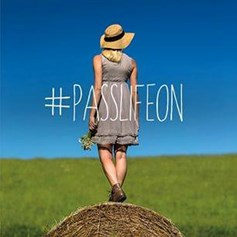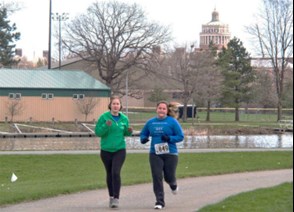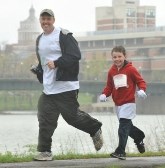Rochester River Run/Walk (Virtual) 5K Fundraiser Returns April 3
Run, Walk or Pledge Your Support for Transplant Patients at Strong!
After a pandemic-pause of our favorite 5K fundraiser, the Rochester River Run returns (Virtually) on Sunday, April 3.
You can run or walk the virtual race from any location you choose: Your very own race course, at your own pace, and time it yourself!
We believe this is the safest way to promote awareness of, and support for, the life-saving miracle of organ donation and transplant given the ever-evolving landscape of pandemic challenges.
Register today and join us virtually from your very own race course to help us raise money to assist patients awaiting and recovering from heart, liver, kidney or pancreas transplant surgery.
How to Participate
Learn more, register or pledge your support at riverrun.urmc.edu up until race day—Sunday, April 3.
- $20 Basic 5K Participant Fee
- $40 Premium 5K Participant Fee (includes a race shirt mailed to you)
- Online registration closes on Sunday, April 3
Tune In
One of the most moving parts of the Rochester River Run has always been the ceremony to honor the gifts of life given and received.
While we will not be physically gathering together this year, we will be live streaming a special webinar ceremony on Sunday, April 3 at 11 a.m. Please stay tuned to riverrun.urmc.edu, as we will provide instructions on how to tune in to the ceremony once all of the details are finalized.
Remember to join in the fun by sharing your race-day selfies on our riverrun.urmc.edu website and on social media!
In collaboration with Friends of Strong Memorial Hospital, the hospital’s Transplant Units, and Finger Lakes Donor Recovery Network, the Rochester River Run/Walk 5K fundraiser supports those who await, undergo and recover from transplant surgery. In observance of Donate Life Month, this event also promotes awareness and educates the public about organ donation while commemorating organ donors and recipients each April. The event has raised more than $280,000 to help offset the costs of medical care and necessary follow-up associated with transplant procedures since 2002.Matt Ulakovic | 2/25/2022




